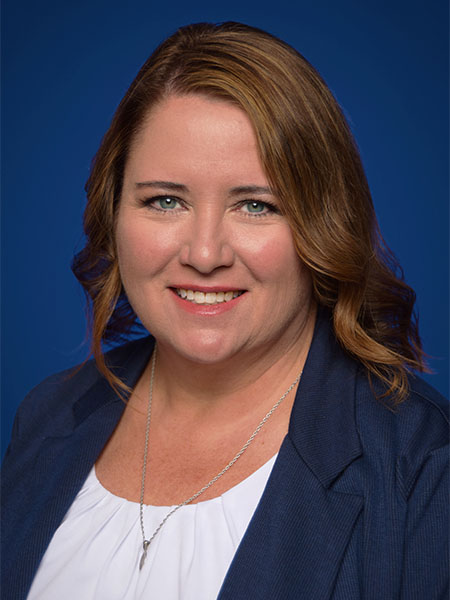
Rebecca A. Loveless, MHS, PA-C, DFAAPA
Director/Second Vice Speaker of the House Candidate
Endorsed by the Nominating Committee
St. Louis, Missouri
Connect with Rebecca
Summary Biography
Hello! I am a clinically practicing PA from Missouri who recently transitioned into academia. I have practiced in multiple states which has given me a unique perspective on the barriers for PA practice and how they can be effectively resolved. I have been actively involved in the HOD for 12 years and have served as reference committee chair since 2020. I am running for Second Vice Speaker because I have invested time in learning effective leadership skills and want to be an active participant in advancing the PA profession in the future through the work of the HOD.
Candidate Questions
AAPA has done an incredible job of moving our profession forward with Optimal Team Practice and the name change initiatives. As part of the AAPA leadership, this progress would continue to be at the forefront, ensuring AAPA is supporting all members and constituent organizations with their efforts in making the necessary legislative changes. Aggressive legislative efforts to advance PA practice, decrease practice barriers, and increase reimbursement at the national and state levels is imperative for our patients. PAs are situated to bridge the gap of health care shortages and to do this we must be allowed to practice and be reimbursed at our maximum potential.
Further, expanding the impact of the Commission on Diversity, Equity and Inclusion would be a priority issue under my leadership. It is not enough to have a diverse seat at the occasional table. Diversity must be present at every table, but more importantly, efforts must be made to educate everyone on how to successfully work together so that everyone is present and welcomed at the table.
Also, I would seek to widen the circle of participation in all AAPA areas such as work groups, task forces, and commissions. AAPA must actively seek out participation from PAs in all chapters and specialty organizations. Increasing opportunities for volunteers will reach previously untapped sources of knowledge, experience, and diversity which will ultimately strengthen AAPA leadership and accomplishments. This also includes capturing student leaders and cultivating their leadership skills and passion for the profession.
AAPA seeks to empower our members to better navigate the extraordinary challenges of the U.S. healthcare environment simultaneously while enduring the complexity and hostility of the political processes that establishes PA practice. Nothing was ever accomplished on behalf of our profession without PAs asking and fighting for it, but the fight is all around us and we should not be attacking or disparaging each other in the battle. We cannot afford to be anything less than united. I will continue to be a citizen leader who guides respectful debate that defines our collective goals and charts the constructive path to achieve them.
My strongest leadership skill that uniquely qualifies me to be a leader in the AAPA, and advance the strategic plan, is my ability to read the room when in meetings and discussions. I have learned when to talk, when to listen, when to follow, and when to lead. This is essential in all the pillars of the strategic plan when you meet with state and federal leaders that may or may not understand the PA profession, new and experienced members of the four national PA organizations, or PA members when talking about the importance of the AAPA strategic plan to the profession.